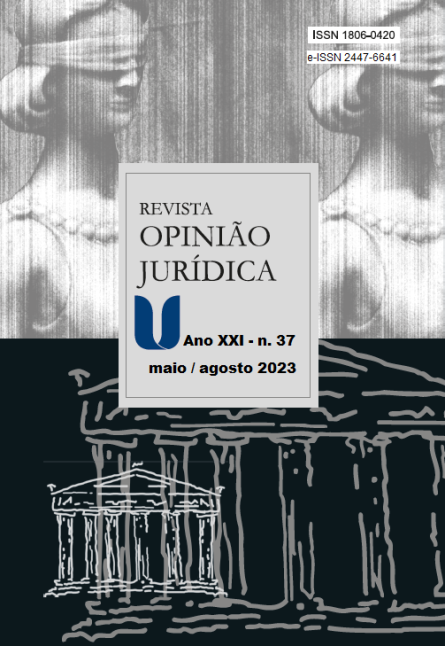ENVIRONMENTAL LEGAL TRAINING. HOLISTIC CHARACTERIZATION
DOI:
https://doi.org/10.12662/2447-6641oj.v21i37.p150-182.2023Keywords:
culture, environmental education, didactics, education, trainingAbstract
Objective: Environmental Law is developed as the logical response to the need to exploit natural resources within a framework of rationality, sustainable use and protection of the environment by States. Its evolution has been rapid and progressive, gradually being incorporated into all legal branches and acquiring, in turn, its own autonomy as a discipline linked to almost all sciences due to its transdisciplinarity. Environmental education is the fundamental instrument to achieve the objectives necessary to achieve sustainable development, it proposes that the population acquire knowledge of the natural, cultural and social aspects that contribute to the solution of environmental problems, by linking the human being with its environment. The epistemological theoretical references of the environmental legal formation process are analyzed in the article from its holistic characterization from different approaches of its construction from complexity and critical thinking, which will contribute to achieving the legal principle of sustainable development due to its multidimensionality, from the teaching-learning process in the Environmental Law subject in the Law degree with the integration of contents.
Methodology: bibliographic review, historical analysis, analysis synthesis, holistic dialectic, and induction deduction are used as methods.
Results: it will contribute to the solution to environmental problems from the integration of environmental legal content with a content proposal for the educational teaching process, it will influence the knowledge of environmental education, where man-nature and in order to achieve the conservation of environmental conditions that it requires for its habitat without prejudice to the development of economic activities that impact it, in need of establishing the mechanisms, measures and procedures that allow a harmonious coexistence of the natural, the social and the economic due to its transdisciplinarity of the issue environmental.
Published
How to Cite
Issue
Section
License
Copyright (c) 2023 Revista Opinião Jurídica (Fortaleza)

This work is licensed under a Creative Commons Attribution-NonCommercial-ShareAlike 4.0 International License.
CESSION OF COPYRIGHTS
The submission of articles to analysis for publication on Opinião Jurídica implies the author(s) transfers copyrights to Centro Universitário Christus – UNICHRISTUS for reproduction, publicizing, distribution, printing and publication, according to the Publication Norm 414R, Opin. Jur., Fortaleza, year 12, n. 16, p.1-414, Jan./Dec. 2014, costs to be bore by UNICHRISTUS, in whatever format or means that may or shall exist, in accordance to articles 49 and following of Federal Law 9.610/98.
1. In ceding copyrights, the author(s) agrees to do so in exclusivity, free of charge and for the totality of the work.
2. UNICHRISTUS may make the work, in its entirety or in parts, available for scholarly purposes, without altering its contents, except for small corrections that are deemed necessary.
3. The cession of copyrights is valid in all countries and for versions of the material in its original language or translated into a foreign language.
RESPONSIBILITY FOR THE CONTENT
By submitting an article, the author(s) declare to have sole responsibility for the content of the piece and is(are), therefore, responsible for any judicial or extrajudicial measures referring to it.
1. In case of joint authorship, all authors are considered collectively responsible, except when proved otherwise.


















